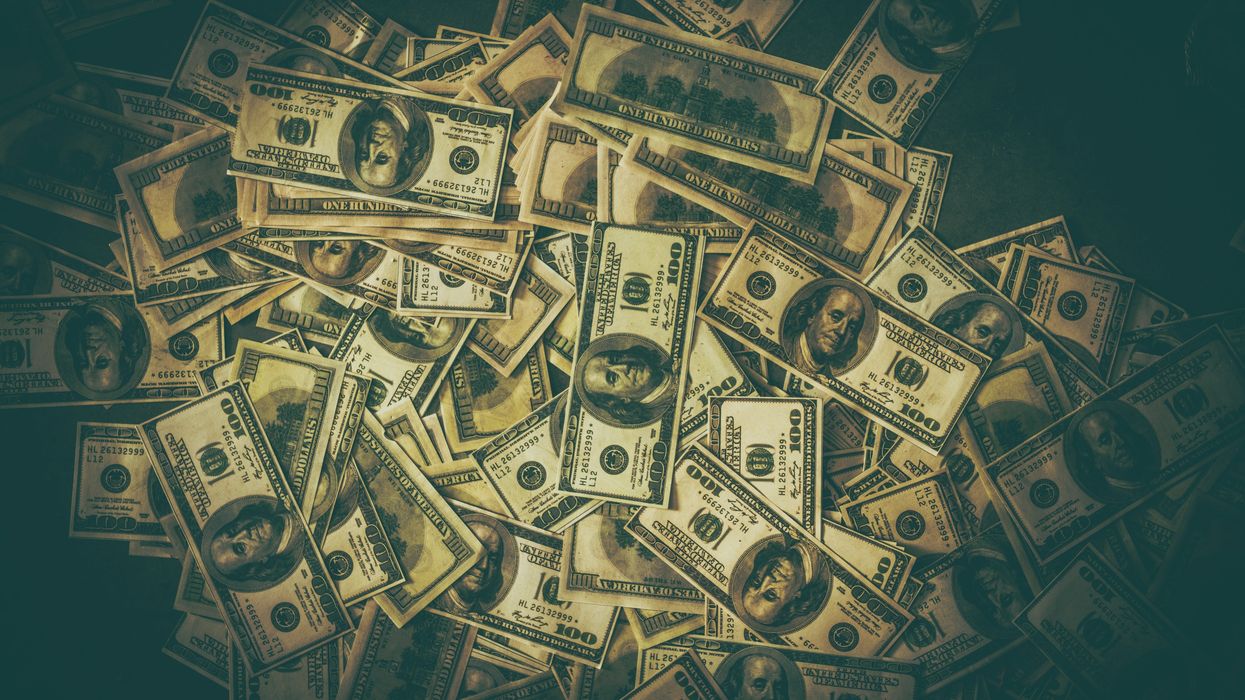Simon is a Maryland business executive who ran for the Senate as an independent in 2018. He is the author of "Contract to Unite America: Ten Reforms to Reclaim Our Republic" (RealClear Publishing).
Party bosses on Capitol Hill once kept envelopes of cash to dispense to loyal party hacks. This kind of corruption was mostly swept away by the reforms that followed the Watergate scandal in the 1970s. But in some ways, what has replaced it is worse.
In 2012, Democratic Sen. Jon Tester of Montana was in a dead heat with his Republican challenger in the last week of the campaign. Then, an ad from a faceless, secretive sponsor flooded the airwaves, encouraging viewers to vote for a Libertarian candidate named Dan Cox. Was the ad made by people trying to help Cox? Nope. Not only did Cox not know "Montana Hunters and Anglers," which turned out to be financing the ads, but the spots lied about him being "the real conservative" in the race in an effort to siphon off Republican voters. It worked: Polling at 1 percent before the ad, Cox got almost 7 percent in the election. The ad's sponsor, who wasn't even in Montana, got what they wanted: the dark-money election of Tester, who won by less than 4 points.
In 2018, Tester was again in a close race, this time against Republican state Auditor Matt Rosendale. Suddenly, voters got hit with a televised blitzkrieg of attacks against Rosendale. One painted him as a greedy newcomer to Big Sky Country who didn't know a cow from a cow pie and who planned to turn his rural ranch into a housing development. Again, the sponsor was faceless and very difficult to trace. (They were later found to be from out of state.) But without such accountability, they're free to lie.
We've seen this on Facebook, and it'll get worse in the 2020 election.
Although Tester has benefited from dark money, it's not a system he created or supports — and dark money has been used against him as well. "You've got groups with really nice-sounding names dumping millions of dollars into these campaigns that quite frankly aren't being totally honest," Tester told CQ Roll Call after his last win. Who was this person or shadowy group who wanted Tester to be a senator? You would think we could at least know: If they're not from Montana, are they inside Russia? Is it China?
In 2014, the Washington Post detailed how Charles and David Koch, the conservative billionaire brothers and Republican campaign financiers, had expanded their political network"into a far-reaching operation of unrivaled complexity, built around a maze of groups that cloaks its donors, according to an analysis of new tax returns and other documents."
Using front groups with names such as American Commitment, American Future Fund and Crossroads GPS, the Kochs weaponized their billions to swing elections in places where they did not live, did not work in, or even had never been to. The Koch network was responsible for more than one-fourth of all dark money reported in the 2012 campaign.
Darkness just encourages bad behavior. It allows more extreme messages, which leads to more polarization. Dark money isn't entirely new; what's new is its outsized influence. In 2006, campaign spending by outside groups that didn't disclose their funding totaled $5 million nationwide. In the next election cycle, it had increased 20-fold, and in 2010 it totaled over $1 billion — split roughly evenly between the left and the right.
This grim new reality actually presents an opportunity. Now that left-leaning groups deploy as much dark money as conservative groups, each side has an incentive to come to the bargaining table. In early 2019, at a meeting on Capitol Hill, Jim Rubens, a former GOP state senator in New Hampshire, made a persuasive case for disclosure rules and then added candidly: "We may as well support disclosure requirements. There is no longer any advantage for Republicans with this type of funding."
I witnessed the impact of complete transparency in the financial services industry: People behave better when they know someone is watching — and the consumer, client or voter always gets a better deal. What we really need is federal legislation. Item No. 4 of my new book calls on Congress to mandate full transparency for all political donations of $100 or more. The American public deserves to know whose money is bankrolling political advertisements — the true identities of the donors, not some Orwellian name like "Freedom Path." America's real path to freedom is transparent, honest campaigns.



















